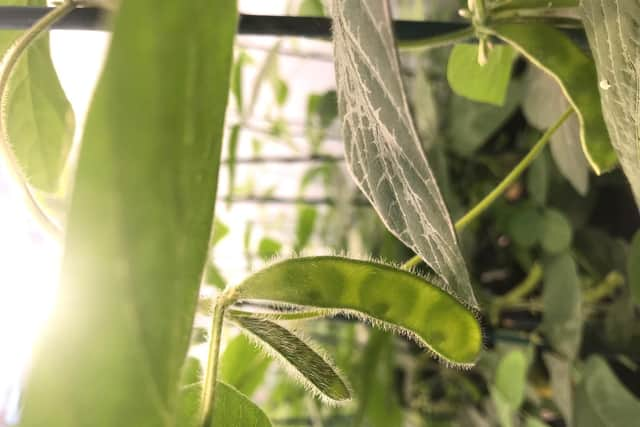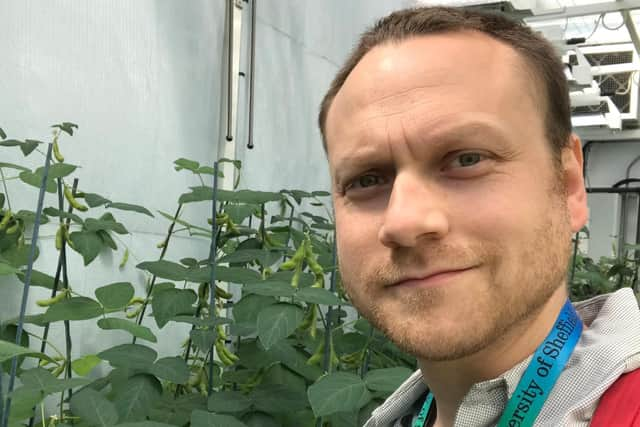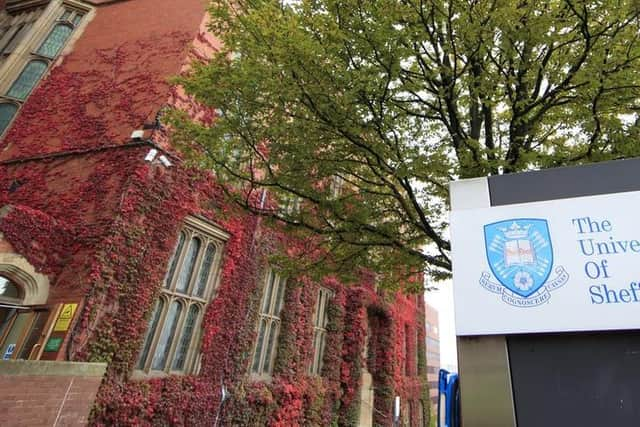How scientists from the University of Sheffield created a new bean to survive climate change
As temperatures rise food crops will become increasingly difficult to grow.
But a team of scientists from the University of Sheffield have created a species of bean that uses up to 40 per cent less water making them a more reliable food crop during droughts.


Advertisement
Hide AdAdvertisement
Hide AdProfessor Julie Gray, from the University of Sheffield's Institute for Sustainable Food, stressed the urgency to the research as scientists around the world are in a "race against time" to create stronger, climate-resilient bean crops to support food security.
This includes in Latin America, where up to 80 per cent of bean yields can be lost with the earlier onset of seasonal droughts.
Professor Gray told The Yorkshire Post: "Modern agriculture uses a lot of water... but this resource is diminishing under climate change, and we desperately need to find new ways to allow farmers to reduce irrigation and still provide enough food for our growing population."
"We hope that our work will produce crops that use less water and are better suited to future warmer and drier climates."


Advertisement
Hide AdAdvertisement
Hide AdAs part of the research the team of scientists engineered the beans by examining the differences between the common bean and the tepary bean - a variety which has been naturally grown in Mesoamerica and Mexico for thousands of years.
With its ability to be grown in semi-desert environments the team observed how the tepary bean is better suited to its surroundings, including its less dense stomata - the microscopic valves on its leaves which are used to control water loss and carbon dioxide intake for photosynthesis.
By manipulating the size and density of stomata, researchers were able to engineer bean crops that can conserve more water and maintain growth under drought conditions for longer than other types of bean; making them ideal for cultivation in hotter climates.
The team from Sheffield have estimated that in Mexico alone new bean varieties could save up to three per cent of the country's entire agricultural water use, the equivalent of 4.5bn litres of water a year by using more drought resistance crops.


Advertisement
Hide AdAdvertisement
Hide AdThe next phase of the study is further glasshouse work and field trials of the soybean variety this year, working together with the Royal Botanical Gardens at Kew and in collaboration with a team in the US.
Dr Caspar Chater, a research leader in natural capital and plant health at the Royal Botanical Gardens, worked on the project at Sheffield before taking up his position at Kew.
He said: “It is critical we develop climate resilient beans by harnessing natural variation in drought resistance. We need new bean crops that farmers will be excited to grow and consumers will be happy to eat.”
__________


Support The Yorkshire Post and become a subscriber today.
Your subscription will help us to continue to bring quality news to the people of Yorkshire. In return, you'll see fewer ads on site, get free access to our app and receive exclusive members-only offers. Click here to subscribe.
